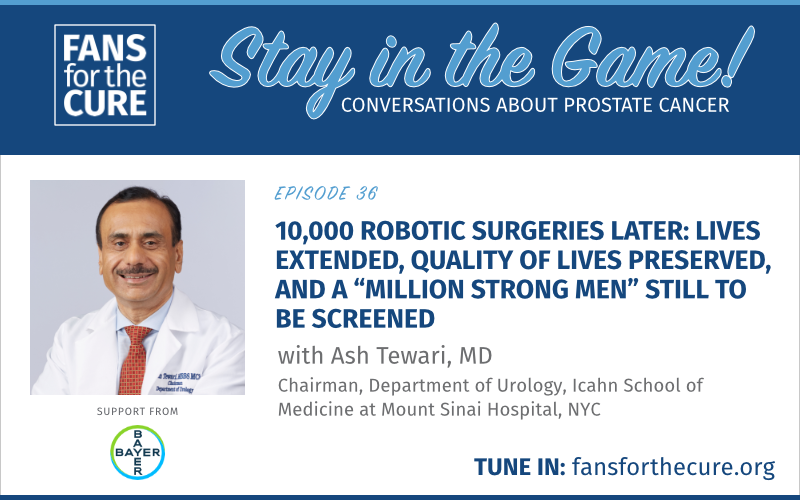We strongly recommend a recent opinion piece in The Vancouver Sun written by Rocco Rossi, the president and CEO of an excellent foundation, Prostate Cancer Canada. Rossi’s article is a response to one published previously by Alan Cassels in the Sun in which Cassels, citing the New England Journal of Medicine, makes the argument against preventive PSA testing by stating that the 10-year survival rate of localized prostate cancer is 99% regardless of the treatment plan – radiation therapy, prostate removal, or active surveillance using PSA tests.
Cassels’ conclusions then go on to strongly echo the U.S. Preventive Service Task Force’s recommendations, stating “this is what you’d call classic over-diagnosis — diagnosing something that was never going to go on to hurt the patient and then actually hurting some of those through treatment.”
Rossi comes armed with facts. First, he points out that 77% of the cancers in the study were low-risk and would now be eligible for active surveillance. But he speculates that there likely would have been significant outcome differences between those being treated and those being monitored (a) had the group included more patients with intermediate or high-risk cancers and (b) had there been more ethnic diversity among the test group.
Next, he flips the argument against PSA testing, stating that the study instead points out that “the earlier we know what we’re dealing with, the better positioned we are to make the decisions that are best for us.” Also, the PSA test makes men and their doctors aware of the presence of prostate cancer when longer term survival rates are at their highest. Once the cancer spreads outside the prostate, the five-year survival rate drops to 31 percent, according to Rossi’s latest data.
Yes, we agree that there are men who could have lived into old age without ever having to be made aware that they had prostate cancer. But, as Rossi points out, there are also men who could die (and have died) far too young because their cancer was not caught early enough. For this reason, Rossi recommends that all men have a baseline PSA reading at age 40 “to get ahead of things.”
Full marks also go to Prostate Cancer Canada for funding cutting-edge research that seeks to find “more precise and less invasive methods for prostate cancer screening and diagnosis.” Their goal, as it is for many pharmaceutical companies and researchers around the world, is to come up with reliable biomarkers that distinguish between aggressive and non-aggressive strains of the disease. But until such a time when these tests are fully evolved and deemed ready for prime time, the emphasis must continue to focus on the PSA screening and early detection.
As Rossi writes, “Time is our greatest ally when faced with prostate cancer. With more time, we have more choice. Early detection truly is key.”
***
Read the original article online: http://vancouversun.com/opinion/opinion-on-behalf-of-men-with-prostate-cancer-and-their-families


